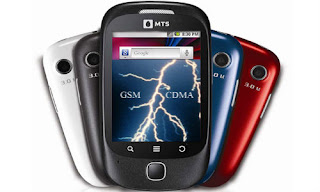Difference Between CDMA and GSM Mobiles Phones
CDMA an GSM are mobile communication standards. Let’s know about the main differences among mobile phones based on these two industry standards. Also learn the full form of CDMA, full form of GSM and full form SIM in context of the mobile phones.
Many of those people who are planning to buy a mobile phone think hard whether to go for a CDMA phone or a GSM phone. The question is pretty understandable and a good one too. Most people do not understand the difference between CDMA and GSM phones. Both these technologies have been in market for quite some time with a number of service providers offering attractive packages.
Full Form of CDMA, GSM and SIM in Mobile Technologies
First let’s begin by knowing the full forms of these acronyms:
Full form of CDMA is Code Division Multiple Access
Full form of GSM is Global System for Mobile communications, but originally from Groupe Spécial Mobile
Full form of SIM is Subscriber Identity Module
Although, globally GSM is more used but in the United States of America CDMA is more popular than GSM. Some of the CDMA providers in various countries are: Verizon (USA), Bell Mobility (USA) and MTS Mobility (USA), Reliance (India) and BSNL (India) etc. Worldwide availability of GSM makes it more accessible in terms of international roaming. Some of the GSM providers around the globe are: Cell C (South Africa), Idea (India), Vodafone (multiple countries), AT&T (USA) and T-Mobile (UK) etc.
First of all, we need to understand that CDMA and GSM are not really technologies but the industry standards / specifications for wireless communication. At present, GSM (short form for Global System for Mobile communications, but originally from Groupe Spécial Mobile) specification holds the lion’s share in market. With more than 80% of world market share, usage of GSM is miles ahead of CDMA. The acronym CDMA stands for Code Division Multiple Access.
In practical terms, the most important difference between these two is that the CDMA is a handset based standard. This means that you can not use just any mobile phone –you need to go to market and buy a CDMA phone from a carrier who providers CDMA service. So it is like that your phone number is bound to a handset. Whereas in case of GSM, only SIM card is bound to the phone number and, as a result, you are free to change your mobile phone anytime –you just need to remove SIM card from old phone and insert it in the new phone.
Mobile phone market is full of CDMA and GSM phones
Mobile phone market is full of CDMA and GSM phones
Now let’s get into more technical details. Every CDMA mobile phone has a specific code associated with it. One blanket network covers all the CDMA devices within its coverage area and the device is identified by the associated code. In case of GSM mobile network, each SIM is served by a cell tower whose area the SIM card arrives in. Therefore, the SIM card’s serving tower keeps changing as your drive through a city. This mechanism requires installation of an appropriate number of cellular towers to cover a big area (as that of a city).
GSM vs CDMA: Table of Comparison
Let’s now do a tabular and concise comparison among these two communication standards.
Parameter
GSM
CDMA
Acronym Full Form
Global System for Mobile communications
Code Division Multiple Access
Phone Number Binding
With SIM card
With mobile handset
Data Storage
Data is stored in SIM card
Phone’s internal memory
Phone Change
You’re free to buy any handset from market
Handset is changed through service provider
Data Transfer Technologies
EDGE/HSDPA
EVDO/3G/4G/LTE
Transfer Speed
A wee bit slower -but catching up fast
Faster
Battery Consumption
Consume less power
Consume more power
Availability
Covers almost the entire globe
Mainly in USA and parts of Asia
Market Share
Approx 80%
Approx 20%
International Roaming
Very good
CDMA is not available all over the globe (so if you fly around the world, GSM could be a better choice for you)
Frequency Band
From 850 MHz to 1900 MHz
Only 850 MHz
I hope now your concept of of a CDMA and GSM phone is clear. CDMA is phasing out of the world with GSM taken over most of the market. However, you still get CDMA mobile services. In India, for example, Reliance is still providing CDMA service.


